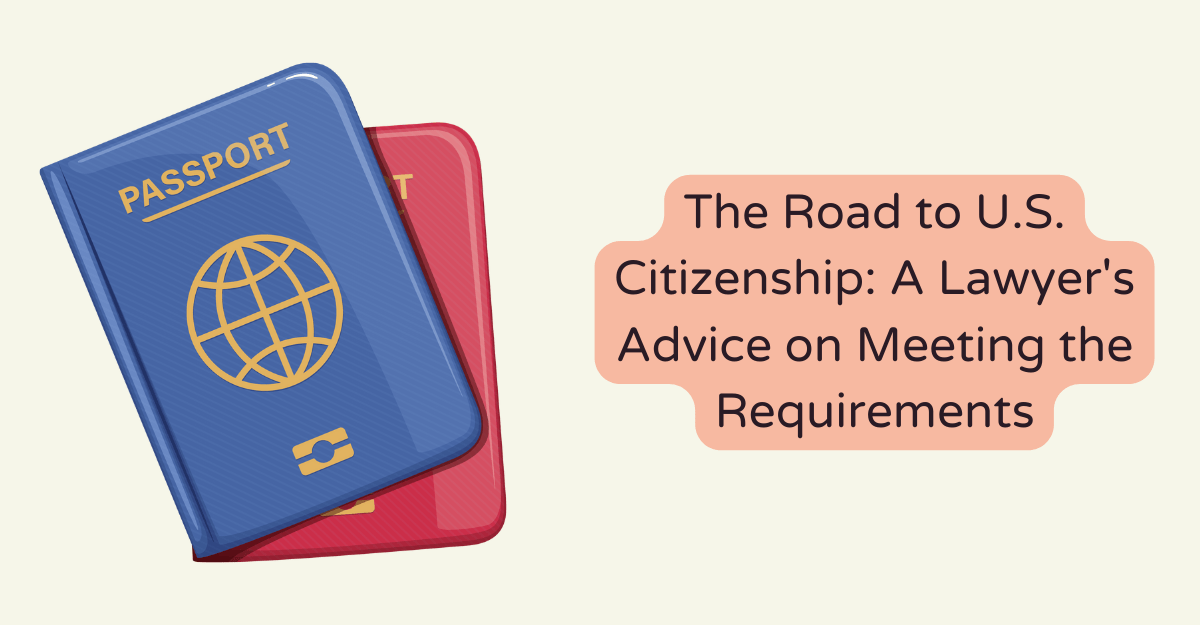
The Road to U.S. Citizenship: A Lawyer’s Advice on Meeting the Requirements
Embarking on the journey towards U.S. citizenship is a monumental step in one’s life, often fraught with complexities and legal intricacies that can feel overwhelming. It’s a path that demands perseverance, attention to detail, and a clear understanding of the legal framework that governs it. Recognizing this challenge, the goal of this article is to illuminate the pathway, providing you with the essential knowledge and strategies to meet the U.S. citizenship requirements successfully.
Understanding U.S. Citizenship Requirements
U.S. citizenship opens the door to a myriad of benefits, including the right to vote, a U.S. passport, and the opportunity for federal employment. However, the process is governed by strict requirements that applicants must fulfill:
- Permanent Residency: Holding a Green Card for at least five years, or three years if married to a U.S. citizen.
- Physical Presence: Being physically present in the U.S. for at least 30 months within the five-year period before applying.
- Residency: Residing in the state or USCIS district where the application is filed for at least three months.
- Good Moral Character: Demonstrating good moral character, including honesty and respect for the law.
- English Proficiency: Showing an ability to read, write, and speak basic English.
- U.S. History and Government Knowledge: Passing a test on U.S. history and government (civics).
- Oath of Allegiance: Taking the Oath of Allegiance to the United States.
In California, a state with one of the highest numbers of naturalization applicants, over 30% of all U.S. citizenship applications come from this vibrant community, reflecting its diverse and dynamic population.
A Lawyer’s Advice on Simplifying the Process
The complexity of the U.S. citizenship process can be daunting. However, with informed guidance and strategic preparation, navigating these requirements can be made significantly more manageable. Here are key strategies:
- Prepare Early: Start gathering necessary documents well in advance. This includes your Green Card, travel records, and tax returns.
- Study Diligently: Utilize available resources to prepare for the civics and English tests. Many free study materials are available online.
- Consult a Professional: While this article does not endorse specific attorneys, seeking advice from a legal professional specializing in immigration law can provide invaluable guidance.
FAQs for U.S. Citizenship Aspirants
- How long does the U.S. citizenship process take? The processing time for U.S. citizenship applications can vary widely depending on your location and the current workload of the USCIS. It’s crucial to check the USCIS website for the most current processing times.
- Can I apply for U.S. citizenship if I have been absent from the country for a long period? Absences from the U.S. of more than six months but less than a year may disrupt your continuous residence requirement unless you can provide a valid reason for your absence.
- What are the common reasons for the denial of U.S. citizenship applications? Applications can be denied for several reasons, including failure to demonstrate good moral character, failing the English or civics test, and issues with the continuous residency requirement.
In summary, the road to U.S. citizenship is paved with challenges that require careful preparation and a thorough understanding of the legal requirements. By adhering to the advice outlined in this article, aspirants can enhance their chances of navigating this process with greater ease and confidence, ultimately achieving their dream of becoming a U.S. citizen.